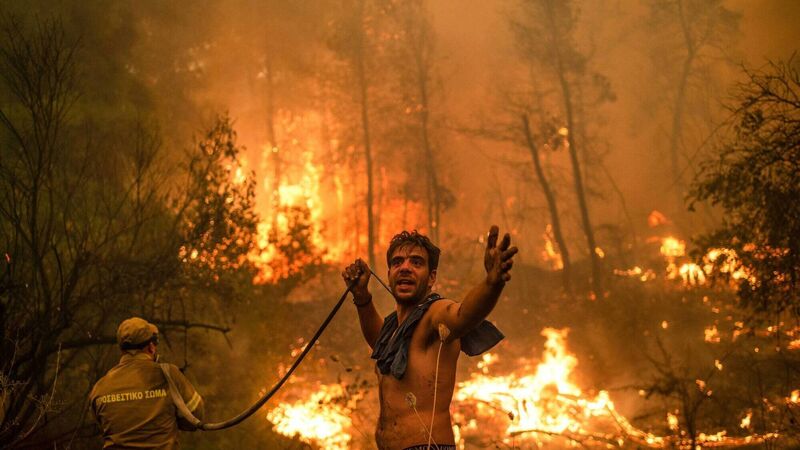Last seven years 'warmest on record' globally

A householder attempts to extinguish a forest fire approaching the village of Pefki on Evia island, Greece last August. Picture: Getty
The previous seven years were the hottest on record by a clear distance, with carbon and methane emissions driving the rise.
That is according to a report from the EU's Copernicus Climate Change Service, which said global concentrations of carbon dioxide, and especially methane, continued to increase.










